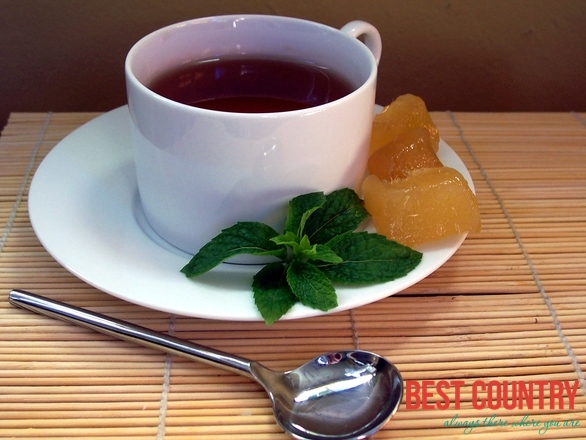In Latvia, ancient rustic wisdom dictates that the leaves and grasses used for herbal tea be picked when the fields are in bloom, shortly before Midsummer\'s Eve, right after the dew dries on a clear, sunny morning, and left to dry for two weeks in a cool, dark, and draughty place.
Drinking tea in Latvia
The tea is packed away in paper bags, which allow the herbs to breathe (old sugar bags are ideal; their ubiquitous presence in Latvian kitchens isn\'t just symptomatic of a national sweet tooth), and then stored in a dry place until winter.
 For evidence of the Latvians\' high regard for the sheer diversity of pickable, dryable, and drinkable herbs, stop by any bar in Riga and ask for a regular tea.
For evidence of the Latvians\' high regard for the sheer diversity of pickable, dryable, and drinkable herbs, stop by any bar in Riga and ask for a regular tea.
Your waitress will roll her eyes, ask what kind of tea you want, and rattle off an endless list of the menu\'s many hot herbal beverages.
But this diversity has little to do with flavor; each herb has a special curative or preventative function, and, when prompted, even the surliest server will turn into an amateur pharmacist, offering her advice on what to drink when, and for what.
There is an accepted canon of tea commandments, and it goes something like this: If you have a cold, headache, or high fever, drink raspberry leaf tea (the herb contains natural aspirin).
If you have a stomachache, drink chamomile tea (strong tea for diarrhea; weak tea for constipation). If you have a cough or sore throat, drink milfoil tea (a drink that may be enhanced by the addition of one tablespoon of honey, one teaspoon of baking soda, and one raw, whisked egg).
If you\'ve been drinking too much alcohol, or overindulging in fatty foods, sip marigold tea (which cleans and detoxifies the liver).
If you want to clean the blood, drink St. John\'s wort tea (asins zalu teja, literally "blood-grass tea").
And if you want to relive pain, drink Lady\'s Mantle tea (rasas kreslinu teja - "dew-chair tea,") an illustration of the unique shape of the leaf, perfect for accommodating a lounging dewdrop).
Another favorite hot beverage consists of hot water and homemade preserves - the berries picked in late summer, mixed with sugar, boiled, and stored in glass jars in the pantry.
These berry teas may also be included in the canon of tea commandments: black-currant-berry preserves give a boost of vitamins; bilberry preserves are good for the eyes and the vision; and cranberry preserves (with a teaspoon of honey) lower a fever.